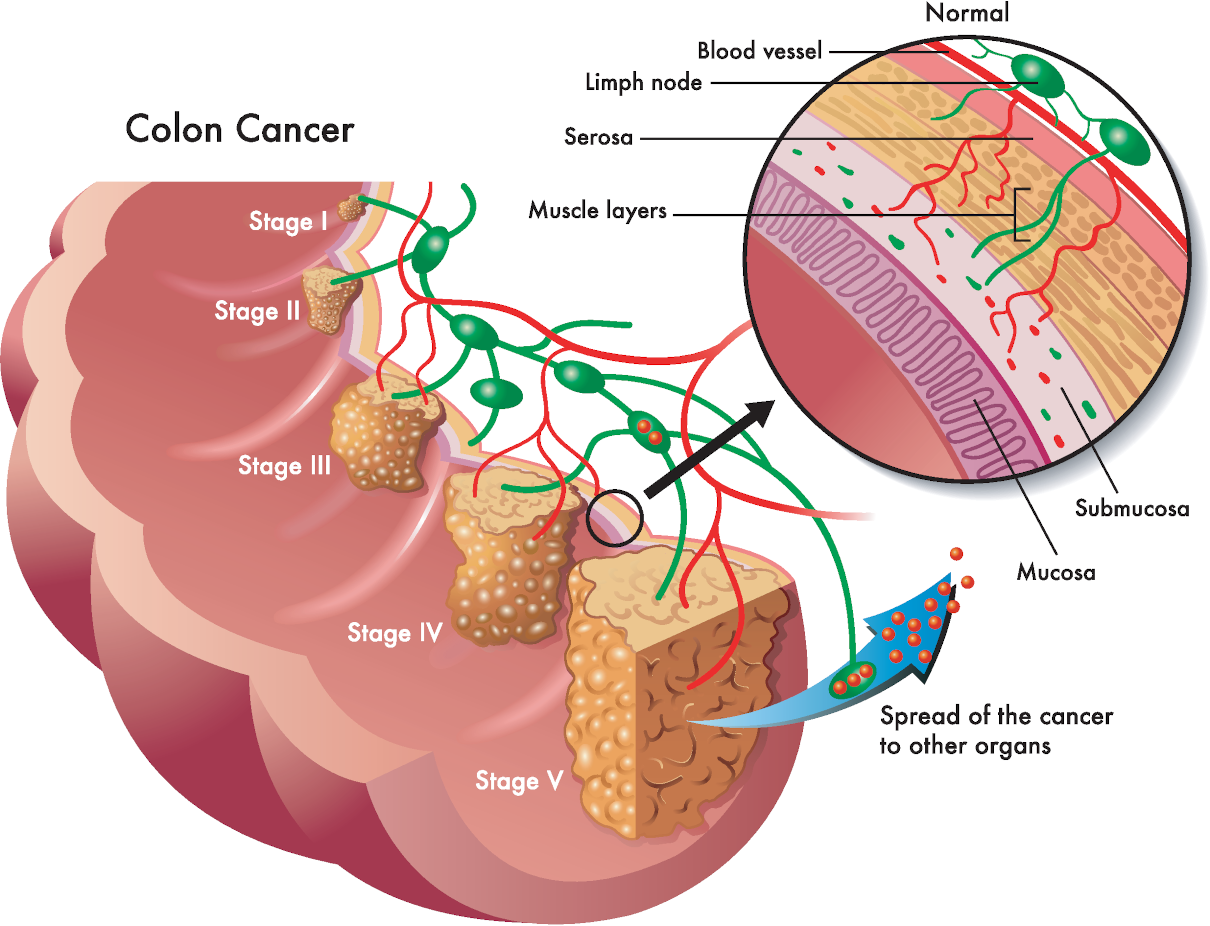
The intestine is an organ located in the abdominal cavity, which performs digestive and excretory functions. According to the human anatomy, the large intestine and the small intestine divide the gut into two segments. Bowel cancer prognosis is reliable
According to the statistics from the World Health Organization, the bowel is the second most likely organ which cancer affects. The most likely organ is the lungs.
Causes
The reason why it is widespread is due to the risks that encourage its development.
These are the following causes of bowel cancer:
- excessive consumption of fatty foods (diets saturated in animal fats and deficient in fibre);
- excess body weight;
- harmful habits, including smoking and alcohol abuse;
- presence of inflammatory bowel pathologies;
Besides, recent studies in this field have shown that people who develop colorectal cancer have often taken antibiotics in their youth for a long time. A survey, with a sample of 15,000 volunteers, showed that 39 to 69 per cent of those, who took antibiotics for more than two months in a row, was at serious risk.

Bowel cancer prognosis and prevention of this disease
Colonic irrigation can prevent bowel cancer by washing out toxins and harmful substances from the intestine. The procedure restores the functionality of the immune system and muscle tone and gives more promising results.
To determine bowel cancer prognosis for further life in people with malignant tumours of the rectum, a statistical indicator. How many people out of 100 lived five or more years after surgical treatment.
Procedure
Bowel cancer prognosis is reliable when performed with a surgical operation. However, in about half of the patients, medics find malignant neoplasm of this localization only in the late stages. And yet, rectal cancer does not mean that the prognosis is necessarily disappointing.
Colonic irrigation in our clinic prevents colon cancer. The procedure restores the microflora, the immune system as well as muscle tone of the colon. As a result, the presence of malignant neoplasms in the intestine falls to a minimum.











